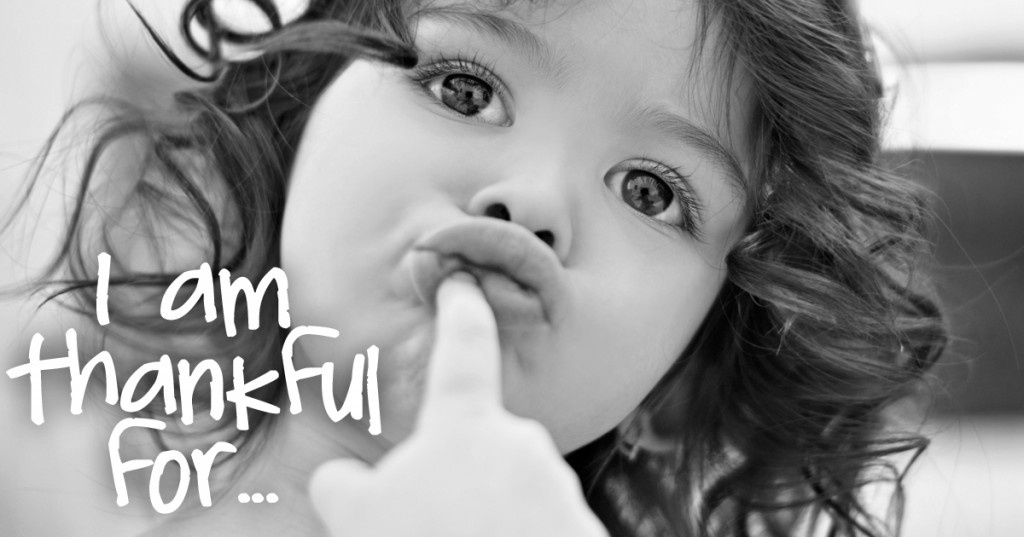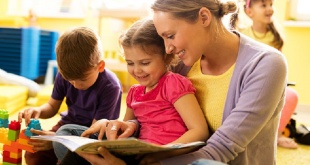
By: Smart Parenting
“What do you say?” is a common phrase said by parents like myself whenever our children are given something. In our family, once our kids reach the age when they are able to learn baby signs, we teach them how to say/sign “thank you,” among other things.
When it comes to receiving gifts, especially on special occasions like birthdays and Christmas, parents would do well by teaching their kids how to be grateful for such presents. Of course, it would be best for children to learn about being thankful every day, not just on special days.
The importance of this is emphasized by Christine Carter, a sociologist, happiness expert, and director of UC Berkeley’s Greater Good Parents program, who says: “if we don’t teach kids gratitude and practice it with them, they grow up feeling entitled, and entitlement does not lead to happiness. On the contrary, it leads to feelings of disappointment and frustration. In contrast, gratitude makes us happy and satisfied with our lives.”
A study conducted by Dr. Robert A. Emmons of the University of California, Davis, affirms this. His research revealed that encouraging gratitude can increase happiness levels by approximately 25 percent, and may also cause persons to live “happier, more satisfied lives and enjoy increased levels of self-esteem, hope, empathy, and optimism.”
Instilling gratitude in one’s child begins with a decision, followed by concrete, consistent “lessons” which should be incorporated in your family’s daily activities.
For example, teach your children to say “thank you” for the small and big blessings that come your way. Model gratitude yourself by showing your kids how grateful you are to have them in your life, since gratitude does not necessarily translate to just material things.
When it comes to receiving gifts, tell your kids to express their thanksgiving right away, and if possible, personally to the gift-giver, just like Karen Cabezon, a housewife, freelance interior designer and homeschool mom to Lujean, 6. Karen says that she and her husband teach Lujean that “every gift no matter how big or small is a blessing from God.” They always remind her to thank the people who give gits personally or through a phone call, a text message, an email or a small note.
Karen also recommends that families pray together every night to thank God (especially, but not only on, birthdays) for all that they had received during the day.
On special days like birthdays, they pray for each and everyone who greeted or gave their daughter a gift, “that God would bless that person or family too.” They even go beyond that by doing the same thing on their own birthdays, or every time they receive a blessing no matter what the occasion is.
Work at home mom Michelle Siaotong-Llaban has the same philosophy. Even if her kids are still young, (Sev Philip is 4 and Kaitlyn Faith is 1 year 7 months), she and hubby Kirby already teach them how to be grateful, especially on birthdays. “We teach our children to thank the Lord first and foremost for the gifts they receive,” Michelle shares. “We do this by praying together and saying out loud our prayer of thanks. We also encourage our kids to speak out their thanksgiving prayers.”
Michelle says they also encourage their kids to make something special for the gift-giver, like a painting or simple drawing. She also reminds them to take care of all gifts they receive “because it is something they can do to show their gratitude to the giver.”
Ballet teacher Liza Castaneda, mom to teenagers Tristan and Alyssa, asks her kids to write “thank you notes” for the senders of birthday gifts, and, whenever possible, to give them a hug and a kiss. She also teaches her children to realize that “gifts are not necessary, just bonuses. If people remember their birthdays and greet them through Facebook, etc, that’s a gift too so they must email back to say thank you.”
Homeschool mom Mayette Salvedia, who also works at the Catholic Filipino Academy, taught her three teenagers J, John Lemuel and Jaimy to list down the names of people who gave gifts, and prepare thank you cards as well. Calls, texts and e-mails are also used to thank people for their generosity. Most important of all, she reminds them to include all gift-givers in their lists of people to pray for.
Pro-blogger Mec Camitan Arevalo, who is also a stay-at-home mom to Rubeus Iakob, 3 yrs old and Yannis Mikah, 8 months old; has a simpler outlook on how to show gratitude for gifts. “We do not really do anything special for when my son receives birthday gifts, but we do make it a point to prompt him to say THANK YOU to the person who gave him something (except for his 1st birthday party, wherein we just really told all the guests a blanket thank you),” she shares. “We also make sure to remind him who gave him what so he’ll treasure the gifts more because it was given by someone he knows/loves.”
Aside from these tips, parents can also help their children learn to be grateful by not showering them with too many things, setting a good example by saying “thank you” sincerely and often, and teaching them to “give back” by helping others.
It would do well also to remember that grateful people are, more often than not, happy people. Teaching your kids gratitude will be something that they will most probably thank you for in the long run.





